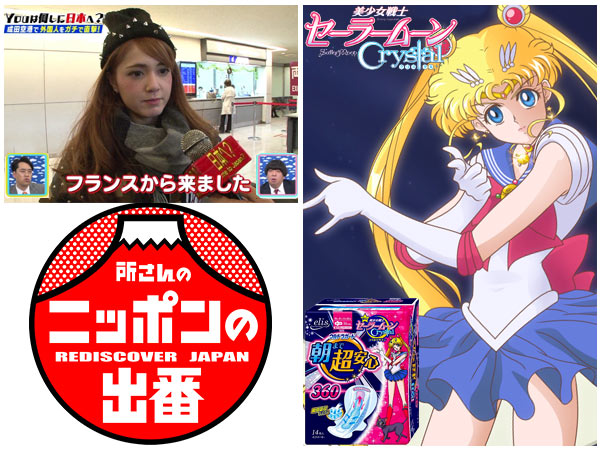
One theme I write about a lot is how Japan is “the only country in the world that cares what its foreigners think.” There are popular TV shows in which bilingual gaijin are asked what aspects of Japanese society they’d like to see change, or which put camera crews in the arrival lobby of Narita Airport to interview foreigners who have just arrived and follow them around as they explore the country. Another popular show is called Nippon no Deban: Rediscover Japan, hosted by popular comedian Tokoro George, who was the voice of Ponyo’s father if you happened to see the Japanese dub of that film. In the show, foreigners ask questions like, “where does the Japanese obsession with always being on time come from?” or “why do Japanese females use the word kawaii several hundred times a day, even about some potentially non-kawaii things?” and the show tries its best to answer the questions. While Japanese have always been interested in hearing what foreigners think of their country – many follow me on Twitter for this reason – some of these TV programs presumably exist because of official support from the Japanese government’s “Cool Japan” program, which aims to remind the world how cool the country is, in imitation of South Korea’s financial support for companies exporting Korean dramas and K-POP groups to other countries.
We all use euphemisms every time we want to discuss something potentially unpleasant in an indirect way, but the Japanese have raised this to an art form. Everything from the constipation all Japanese women seem cursed with to referring to anything related to sex with the letter “H” (ecchi) are generally discussed using roundabout phrases. Death is something rarely mentioned directly, and when Nitroplus music producer Shingo Minamino was tragically killed in a random knife attack in Osaka in 2012, the phrase 帰らぬ人となった kaeranu hito to natta (“he became a person who would never return home again”) was used. Sometimes when you go to ride a train in Tokyo you find that the lines have all stopped, due to a 人身事故 jinshin-jiko or “an accident involving physical injury,” which is a polite way of saying a troubled individual decided to opt out of the rest of his life by jumping in front of a train. A woman’s monthly period is also something rarely discussed directly, instead using the word 生理 seiri, which actually means “biology,” or with colorful phrases like 旗日 hatabi (“flag day”), which is obvious if you look at a Japanese flag. Women who grew up in the 1990s have another interesting euphemism for this: Sailor Moon’s Day, the day when Sailor Moon comes for a visit. Capitalizing on this cute term, a Japanese company has released a line of officially licensed feminine products which allow women to banish their monthly cycles in the name of the moon!
Fans are going to love the upcoming English visual novel Girlish Grimoire Littlewitch Romanesque for a lot of reasons, including kawaii characters, a great gameplay system involving rolling dice to build up magical skill then learning spells and going on quests, and the depth of the game story. In addition to Aria and Kaya, the two girls whose magical training you’re responsible for, there’s a host of other characters, like the cute catgirl maid Tillet, the female Knight Rosetta, the eccentric elf Marrett, and the sexy architect, who loves building beautiful things. All are romancible characters in this fully translated, voiced and uncensored game that all fans should preorder now.
















